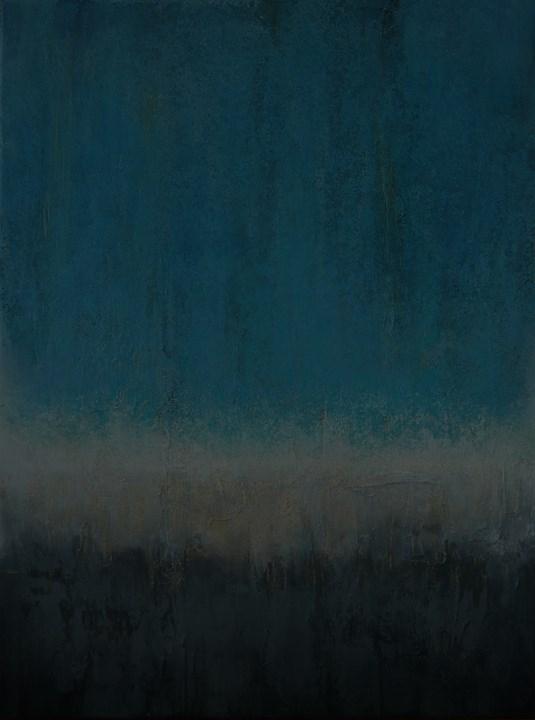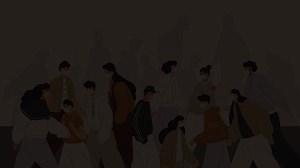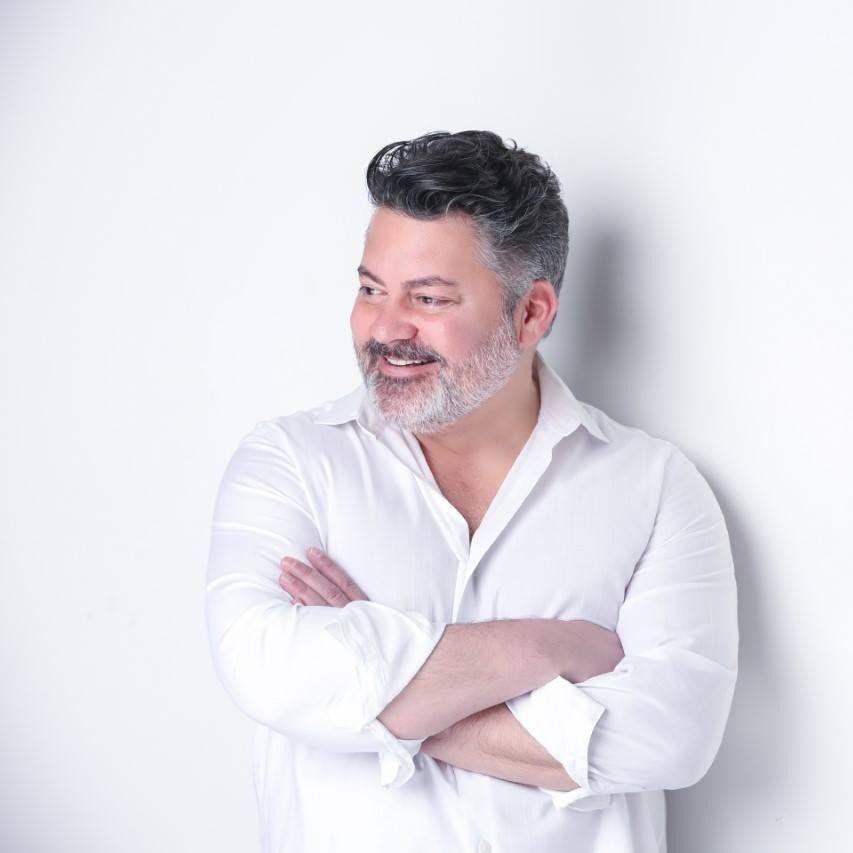
6 minute read
Eulogy for Tiny Relationship Cynthia Ezell
Life was rich with tiny relationships before the pandemic. They were like appetizers at a cocktail party, little bite-sized moments of connection that hinted at possibilities and gave us warm feelings, fleeting but restorative as we slogged through the mundanities of a normal day. They were born of encounters with random strangers who inhabit our orbit but don't take up permanent residence in the landscape of our psyches. Like the teenage boy who sacks groceries at the Kroger in my small town. Because the store makes him wear a name badge, I can make a bid for conversation by saying, "Hi, Drew, how's your day going?", and there isn't much he can do to ignore me. Often the Drews of my world appreciate being seen as real people and not just flesh-covered robots, so they respond and lob a question back at me. "I'm okay. How 'bout you?" Bam. A tiny relationship has just occurred. These days Drew and I are both wearing masks and trying not to get too close to each other. He can't even see me smiling at him. Other tiny relationships happen less intentionally, like my maybe not so tiny relationship with Nancy, the woman who washes my hair when I go to the salon for a highlight. I look forward to talking to Nancy as much as I look forward to being blonde again for a few months.. She is the only other person in the world who washes my hair. I miss her. Tiny relationships sometimes surprise us. Sometimes we don't really welcome them but get roped in by circumstance. Sometimes they change our lives. I was in Louisville, KY on a blustery Spring morning in 2019, the Before Times. As I approached the corner of Broadway and Third, a woman with kinky grey hair and baggy blue pants stood beside a grocery cart strewn with plastic bags, water bottles, and a worn woolen blanket. She was agitated and kept walking toward the crosswalk, then veering back under the awning that ran along the ground floor of the Brown Hotel. I was a student at Spalding University, and like Drew, my grocery store buddy, had on a name badge as I walked to class. The woman rushed over to me and said, "Cynthia, I need you to help me!" "Okay…..", I replied. “What do you need?" "I need you to help me cross the street. I'm afraid of the wind." She grabbed my arm and headed for the curb as the pedestrian crossing sign turned green. We had twenty seconds to make it across Broadway before the cars on Third would be unleashed. "I'm afraid of the wind," she said again as her eyes searched the sky. Her obvious distress softened my reserve. "It will be okay. What's your name?", I asked as we merged into the flow of strangers, all intent on getting across before the seconds ticked off. "Elaine," she replied, her eyes darting between the sky and the safety of the curb across the street. Elaine's attention was on the Out There, on the untamable, uncontrollable wind. Elaine had not approached me for conversation. She didn’t need directions. She wasn’t asking for money. She just needed someone to hold on to. I was an anchor keeping her tethered to the ground. I was her kite string. "Well, Elaine, you are doing great. The wind is strong today, but we are almost across." Elaine was not comforted. A huge gust swept down and blew her hair back off her face as if an electric current had passed through her body. Her grip on my arm tightened as if she could pull us both through the barrier of her fear. We reached the curb just as the crimson hand signaling STOP began flashing. "We made it Elaine!” In those few seconds, Elaine’s challenge had become mine. WE had made it across. I wanted to ditch my classes, walk with her to the bagel shop around the corner, and buy us both breakfast. Our circumstances were vastly different, but we were close to the same age. Her psychological vulnerabilities aside, she carried herself with a resilience that drew me in. I wanted to hear her story, discover how she navigated homelessness and aging and the damn, relentless, wind, but Elaine was focused on getting to her destination.
(Continued on page 5)
"Thank you, Cynthia," Elaine said as she pointed her cart going east on Main and hurried off, hugging the side of the buildings as the wind continued its disheveling, blowing us about like scraps of paper. I watched her for a moment, disappointed, and inspired. When walking city streets, it is my habit to ignore people unless they specifically ask me for something, but it was impossible to ignore Elaine when she called me by name. If I hadn't been wearing the name tag, she might have chosen someone else to help her, and I would have missed the encounter. We should all, every day, walk around with name badges on, large ones with bold lettering so people can read them from six feet away. Perfect strangers will seem like friends. Especially now that we can't touch people, now that we are supposed to keep our distance, name badges would make us feel less isolated and afraid. Elaine has likely had many similar encounters with strangers, living as a homeless person where every day is filled with challenges my privilege blinds me to. She won't remember the middle-aged lady who helped her cross the street on a windy day in May, but I will never forget her. My tiny relationship with Elaine stuck with me. Her permission to ask for help reminds me that I too can ask for help. There is much in the world right now that frightens me. Things that feel as violent and powerful and as out of my control as the raging wind. I need the tiny relationships with people in my world as a buffer. Laurie Santos is a professor at Yale who teaches a popular class called "The Science of Well-Being." In an interview that appeared in the New York Times in October of 2020, Dr. Santos spoke to the power of tiny relationships when she said, "One of the most shocking ones for me is a study looking at how simple interactions with strangers positively affect your well-being." She added, "a simple chat with a stranger can make people feel great,” and that missing out on those tiny relationships is “negatively affecting our wellbeing.”
One danger of the pandemic is that we begin to view the strangers we meet with suspicion. Could they be infected? Will they come too close to me? We are beginning to view the stranger as potentially dangerous instead of someone who might offer us a positive experience. What I want to think when someone unknown crosses my path is, What might they know that I don't? What are they offering to me, to the world? We need to keep talking to the Drews who enter our lives and hope for more Elaines to appear. We will need to speak up, so our words can reach each other through the fabric that keeps us safe. I will not give up these chance encounters and I will rejoice when we can reach out and take the arm of a stranger. The pandemic has robbed us of a great deal, but someday the tiny relationships will return. The wind is strong, but we are almost across.



Reference: https://www.nytimes.com/2020/10/07/health/ laurie-santos-covid-happiness.html






